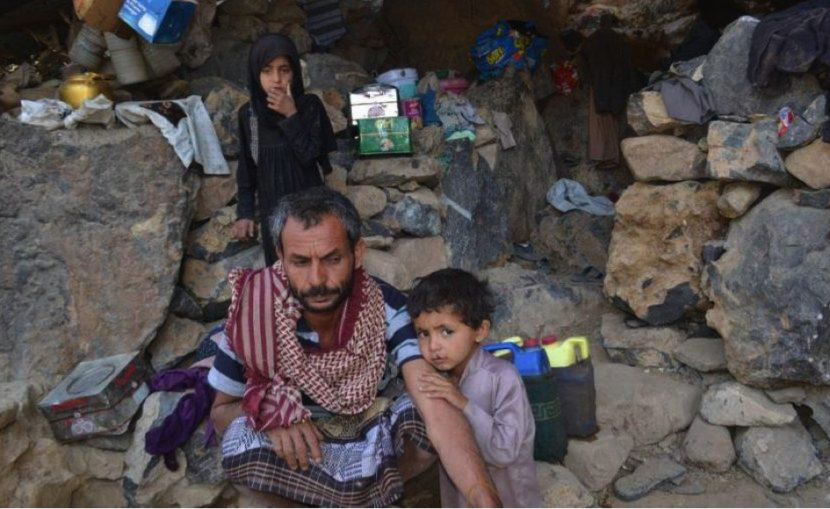Sana’a, Aden, Socotra: two major cities with fascinating histories and a unique archipelago, all found in a country called Yemen, a stunning corner of the Arabian Peninsula. Mesmerising, yet most Westerners would struggle to pinpoint this land on the map, let alone its cities and its World Heritage Site island province. In fact, fame and allure seldom spring to one’s mind at mentioning Yemen. It’s rather notoriety that dominates Western psyches’ attempts at summing up what this poverty-ridden and relatively oil deprived country is known for.
Headlines of war, famine, terrorism and – more recently – kidnappings keep popping up at the portals of news outlets, but even these horrendous, attention-grabbing titles are insufficient to draw the Western World’s full attention to Yemen. It’s safe to say that Yemen is like an emergency patient who has been told to go home and wait for the doctor’s call.
The latest conflict in Yemen started in 2015 with the outbreak of a civil war between a handful of opposing groups vying for power. Saudi Arabia intervened, the number of casualties hiked. Fast-forward to 2018: nearly 10 000 people have died since the war broke out; in August 40 children perished in a bomb attack on a school bus carried out by a Saudi-led coalition warplane; according to Save The Children, 5.2 million children are at risk of famine in the 27 million strong country. And one would assume the situation on the ground cannot get any worse! In September 2018 Human Rights Watch published a report on 16 documented cases of unlawful detention and torture carried out by Houthi forces. According to the Watchdog, the aim of most of these kidnappings has been to extort money from the relatives of the kidnapped. HRW has called on the United Nations Human Rights Council to renew the mandate of the Group of Eminent Experts on Yemen, which may investigate and eventually identify the perpetrators of these war crimes.
The HRW report also details – the often inhumane – living conditions detainees need to cope with: poor hygiene, limited access to toilets, lack of food and health care, widespread humiliation and torture. According to the report, some been forced to defecate on themselves due to no access to a restroom. Those few who have been released in exchange for hefty payments by their families are reported to have sustained serious psychological trauma. The Watchdog has called upon Houthi authorities to release with immediate effect those held arbitrarily. Failing to do so should prompt the United Nations Security Council to impose sanctions on the individuals who bear the most responsibility for the human rights abuses committed against the detainees. Moreover, if Yemen joined the International Criminal Court as recommended by HRW, the eventual prosecution of war crimes committed by all parties to the conflict would become possible. However, it remains to be seen what real action will be a taken by the International Community.
High school teacher Yahiya al-Hayeg, one of the former captives interviewed, has told stories of unbearable torture and ripe brutality at Houthi detention facilities. According to his accounts, detainees were beaten with cables and tortured. He even recalls seeing a former student of his arbitrarily detained, a student who had previously ‘disappeared’ during his last year at high school. The kidnappers seem to act indiscriminately: besides men, women and children have also been targeted.
Yet again, Yemen is in the spotlight for all the wrong reasons – but not for long. After all, it is not fame but obscurity that has haunted this country throughout its turbulent history. It’s high time our brothers and sisters, daughters and sons are given the aid and attention the suffering they have endured would warrant. They will not arrive in masses at Europe’s shores and their motherland offers no riches to their ultimate saviour, yet their lives and well-being are worth just as much as any human’s can possible be.
Yemen needs you. Its people have withstood famines and unspeakable suffering at the hands of militias and government forces alike. You might feel for the Yemeni and wonder whether there is anything you can do. Publicity, being talked about and listened to is what this nation is most hungry for. It is only the World’s attention that can change the fate of the people of Yemen. Share this article, or any other you might have stumbled upon, write a post, talk to those around you, be a voice for our brothers, sisters, daughters and sons who happened to be born in this distant corner of the Arabian Peninsula.
At Humanium, we strive to uphold the rights of every child in the world, by sensitising adults and children about our cause, by changing attitudes, and by working directly in the field.
Visit our website https://www.humanium.org/en/ to learn more about children’s rights and our work, to contact Humanium’s team, and to stand beside us in improving the life of thousands of children throughout the world !
Written by Matyas Baan


